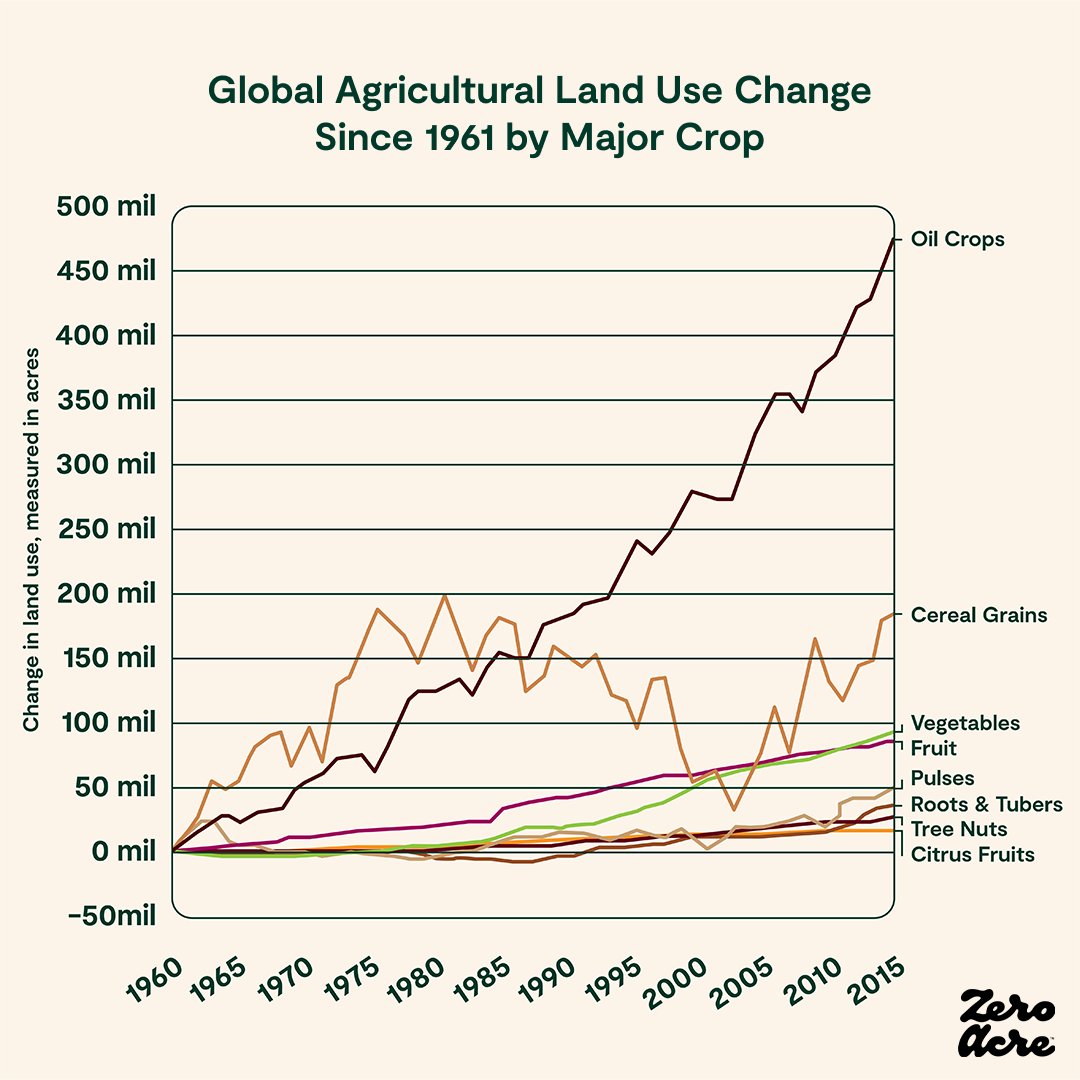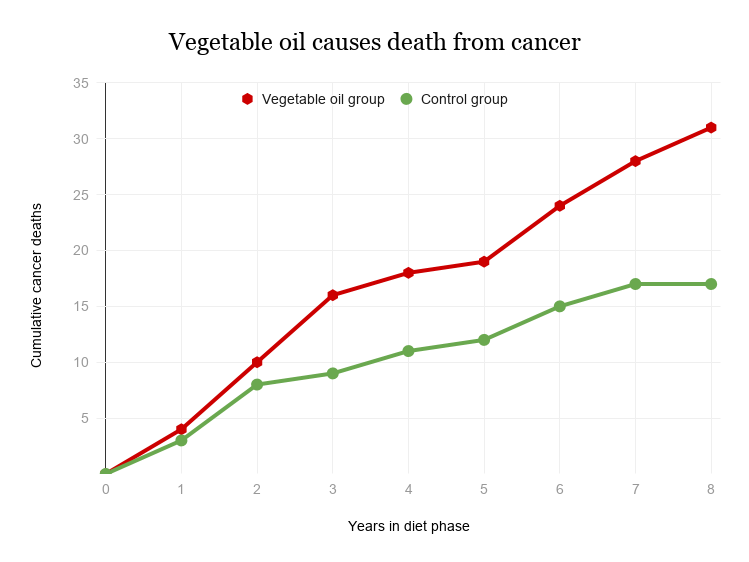
Jeff Nobbs
@jeffnobbs
Followers
4K
Following
877
Media
186
Statuses
1K
Co-founder @ZeroAcreFarms on a mission to get seed oils out of our food system. Co-founder @KitavaKitchen.
Oakland, CA
Joined March 2009
For the last couple of years, I've been working with an incredible group of people on a stealth food company called @ZeroAcreFarms. Today, we announce our mission: to remove destructive "vegetable" oils from the food system. Here's why (thread) 👇.
50
92
578
I'm excited to announce that Chipotle has invested in @ZeroAcreFarms through their Cultivate Next fund!. This is just a small first step, but highlights the possibility of a future where large restaurant chains move away from vegetable oils and seed oils.
32
76
547
I'm thrilled to announce that @ZeroAcreFarms has partnered with @shakeshack!. Starting today, select Shake Shack locations in New York are frying in Zero Acre oil instead of soybean oil. Why does this matter? 👇.
47
48
380
Even if you aren't persuaded by health reasons to avoid seed oils and vegetable oils, do it for the environment:. Since the 1960s, more agricultural land has been dedicated to oil crops than to all other crop types combined.
A thread on the environmental impact of food crops and vegetable oils. We dedicate a lot of land to crops. About 12% of all habitable land on Earth, over 1.5 billion hectares, is dedicated to food crops for human consumption, up from 300 million hectares a few hundred years ago.
9
35
136
To avoid unwanted weight gain, migraines, cancer, heart disease, and death, it may be prudent to make the switch away from high-linoleic seed oils. The oils/fats lowest in linoleic acid are Cultured Oil from @ZeroAcreFarms (my company), tallow/dairy fats, and fruit oils (olive):
9
12
132
@OnlyDylanHall @reallytanman Obesity rates in Japan have been growing exponentially in recent decades. Interestingly, calories have been going down while weight gain rises. Caloric intake was the same in 1975 as in 2013. During that same time, vegetable oil intake doubled, and since 1950 has increased 13x.
4
19
86
@AlpacaAurelius Apples and pears are the worst fruits. Both are bred for sweetness, not nutrient density.
9
4
64
@esaagar The Native American Pima people in the US have a 67% obesity rate and have been eating a more Western diet of seed oils, flour, and sugar. But Pima men in Mexico with identical genetics who still live off of their traditional diet have 10x less obesity.
2
5
56
At @ZeroAcreFarms, we are on a mission to remove destructive vegetable oils from the food system. And we’re not going to stop until restaurant deep fryers, home pantries, and packaged foods around the world are finally free of these harmful oils and fats.
2
1
41
@esaagar Genetics do play a role in obesity, but only to the extent that obesogenic foods are present in the diet. Without those foods, and with physical activity, even populations predisposed to obesity remain thin and fit. For example 👇.
1
1
40
@TuckerGoodrich @puddleg Your question got me curious and I couldn't help but do an analysis. Unsurprisingly, the trend in calories from high-PUFA vegetable oils in Sweden follows a similar curve:
3
5
30
@thesamparr To a 5 year old:.When you eat seed oils, it's like eating tiny bombs that explode inside your body, breaking lots of things you need to be healthy. Studies by scientists show that eating a lot of seed oils is as bad as smoking cigarettes. To an adult:
Seed oils appear to cause obesity due to their high content of a specific type of fat called linoleic acid, a type of omega-6 polyunsaturated fat (PUFA). Here are some of the randomized controlled trials in humans that link seed oils & linoleic acid to disease and weight gain 👇.
2
12
34
Very excited to soon announce our first product and what we’ve been cooking up at @ZeroAcreFarms. See you July 26th!.
We're cooking up something huge – something that’s going to change the future of fat forever. If you care about health, sustainability, and cooking delicious food, then you’re in the right place. Get ready for a future free from destructive vegetable oils: starting July 26th.
7
2
27
See the studies and read more about the link between seed oils, HNE, and obesity in our white paper: And learn more the health benefits of Cultured Oil from @ZeroAcreFarms (my company), which is made by fermenting sugarcane, at
13
1
27
@TuckerGoodrich @hubermanlab @BioLayne @NIH @DellMedSchool I would also add Ameer Taha's lab to the list at UC Davis:
1
1
19
@CarnivoreMD Because of the omega-6 (linoleic acid) in canola oil, many canola oils do indeed contain trans fats, up to 2%+ trans fats (. & most other seed oils (soybean, grape seed, rice bran, corn, cottonseed) contain even more omega-6 linoleic acid than canola oil.
2
6
16
@touchdownHtown @bruno_crocco @AveMerci @SeedOilDsrspctr That's based on EVOO where only some of the oil is extracted from the olive. One olive has 1.82 grams of fat according to the #'s below (Healthline). 5 tablespoons of olive oil = 70 grams of fat. Therefore, you'd have to eat ~38 olives to get the amount of fat in 5 tablespoons.
0
0
12
In a study on the production of HNE and other PUFA-derived aldehydes among common cooking oils,.@ZeroAcreFarms comes out on top. Cultured Oil results in the lowest levels of HNE when heated, while corn, rapeseed (canola), sunflower, and soybean oil result in the highest levels.
3
4
23
I haven't met Sir Richard directly but hope to someday. His family and team are incredibly supportive of our mission at @ZeroAcreFarms.
How @ZeroAcreFarms - a company backed by members of the Branson family - is seeking to bring an end to destructive vegetable oils: @HollyBranson @SamBranson @RichardBranson.
2
0
15
RT @jdrive: "#Entrepreneurs: The only people who work 80 hours a week to avoid working 40 hour weeks.".
0
0
0
@davedoestrading Similar to ghee (clarified butter), @ZeroAcreFarms cultured oil, and tallow (around 2% linoleic acid).
0
0
15
Great conversation with @dhrupurohit all about seed oils. The history, the recent studies, the different sides of the argument, and the alternatives
1
3
15
@bedrockusofa @NeilFlochMD Eating whole foods is generally not an issue since you would have to eat A LOT of whole foods to get the amount of oil and omega-6 that's in seed oils (image below from
2
1
13
7) Oysters can be eaten fresh or make for a convenient canned (smoked) snack. I’m partial to the @CPseafood smoked oysters with red chili pepper.
3
0
12
If you think you're having a bad day, it can't be as bad as the poor ops/engineer at HBO who accidentally just sent an internal test email to the entire @hbomax external mailing list.
1
1
12
@richcollins @ZeroAcreFarms More details coming in the weeks and months ahead. We're focused on oils and fats that have a healthy fat profile (especially low omega-6 linoleic acid), low environmental footprint, and stand the best chance of displacing seed oils at scale, in restaurants and packaged foods.
0
0
8


























































